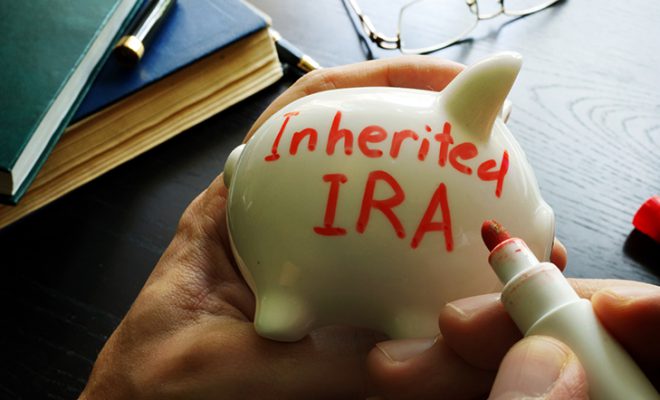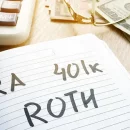All About Withdrawing Retirement Funds

There are several ways to save money for retirement. You can invest in mutual funds, open a savings account, a 401(k) retirement account, etc. But if you fail to strategize your withdrawals for each of your savings methods, you could end up losing a major chunk of your money to taxes and penalties. While everyone starts savings with the intention of using the money post-retirement, many personal or professional circumstances may push you to withdraw these funds before they mature. Some people may also falter with withdrawals post-retirement. What happens if you make early withdrawals or if you fail to make timely Required Minimum Distributions? Let’s find out.
Table of Contents
Current Withdrawal Trends in America
Recently, Bankrate conducted a survey that revealed that in the present times, 44% of Americans earning over $80,000 accepted to withdrawing their retirement funds early. For people earning less than $30,000, this figure was up at 60%. There are several reasons why people tap into their retirement savings from time to time, for example, healthcare expenses, buying a home or a car, taking a career break, etc. Regardless of the reason, early or unplanned withdrawals from retirement accounts can affect you at a later stage in life. It can also result in high taxes, penalties, and the constant stress of having to replace them with more contributions.
Broadly speaking, there are two facets of retirement withdrawals that you should know. One is an early withdrawal, and the other one is Required Minimum Distribution.
Early Withdrawals
If you end up withdrawing money from retirement accounts like 401(k)s or IRAs, before the age of 59½, you can face a 10% penalty. The withdrawals from these accounts are also added to your income, so you need to be careful about how much money you withdraw at a time. A bigger sum can put you in a higher tax bracket.
If you need to withdraw funds from retirement account, you should consider a Roth IRA, as it is more flexible in its rules. Withdrawals from a Roth IRA do not call for a penalty if they are used for the following reasons:
- College expenses for yourself, your spouse, your children, or grandchildren
- Buying a house for the first time. Although there is a limit of $10,000 here
- Expenses related to a sudden physical or mental disability
- Medical expenses that account for more than 10% of your yearly income if you are under the age of 65
An effective way to entirely avoid early withdrawals is to have insurance and an emergency fund. Liquid assets in the form of an emergency fund can be very helpful in urgent situations. If you find yourself in a health emergency, make sure you have an insurance cover that takes care of the expenses. For all other expenses, you can dip into your emergency fund. Early withdrawals from retirement accounts should always be your last option to consider. And if you decide to withdraw funds, make sure you understand the financial repercussions of your actions and discuss them with your financial advisor.
Required Minimum Distributions
The law mandates timely withdrawals or Required Minimum Distributions (RMDs) from retirement accounts after the age of 70½. Your tax liabilities can considerably increase if you fail to do so. You may think it is your money and that you can use it as you please, but the rules and regulations surrounding retirement accounts are very stringent. It is important for retirees to know these rules so they do not end up in losses rather than taking advantage of the accumulated profits.
The Internal Revenue Services have a table that shows you the RMD that you can withdraw every year after the age of 70½. The amount for your RMD may depend on your age and account balance. Make sure you consult this table from time to time to avoid paying unnecessary taxes.
Repercussions of Incorrect Withdrawals
Untimely or unplanned withdrawals at whichever stage in life can result in the following:
- Reduced compound interest: When you contribute money in a retirement account, it grows tax-free over a period of time. The longer the lock-in period, the better compound interest is earned on your savings. If you make untimely withdrawals, your compound interest gets negatively affected.
- Affects your financial standing: Having money locked up in a retirement account gives you an assured sense of financial stability. If you use it up on expenses other than retirement, your overall standard of life can get severely affected.
- Increases taxes: Unplanned or large withdrawals can increase your gross income. You may end up paying more than usual taxes to the government.
- Tough to save again: Retirement accounts have a yearly contribution limit. For example, the limit for a 401(k) account was set at $19,000 in 2019. This means that you cannot contribute more than this amount, even if you may have the money.
To Sum it Up
The only way to not falter with retirement withdrawals is to know the policies of each of your accounts. As a rule of thumb, always try to keep the option of early withdrawals, the last resort. Don’t forget the importance of withdrawals after you retire too. RMDs are a very important facet of retirement planning. Make sure that you keep yourself up to date with the latest IRS regulations on the subject.
Are you aware of the rules concerning your retirement account? Reach out to financial advisors for a better understanding of how to plan your withdrawals.



















